Sep 19, 2025
Thermoplastic polyurethane tubing combines flexibility, toughness, and chemical resistance to meet the demanding needs of pneumatic, hydraulic, medical, and industrial systems. This comprehensive guide highlights the material's unique properties, key benefits, and common applications.
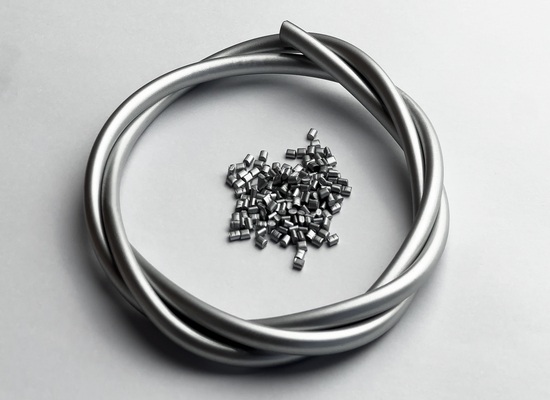
Thermoplastic polyurethane tubing is a melt-processable elastomer that combines the strength of plastic with the flexibility of rubber. Known for its durability, tensile strength, and resistance to chemicals, it is widely used in automotive components, wire and cable jacketing, breathable films, and protective coatings. Developed in 1937 by Otto Bayer and his team in Germany, TPU offers high elongation at break, strong load-bearing capacity, and long service life. Its balance of mechanical and chemical properties makes it a reliable choice for demanding applications across multiple industries.
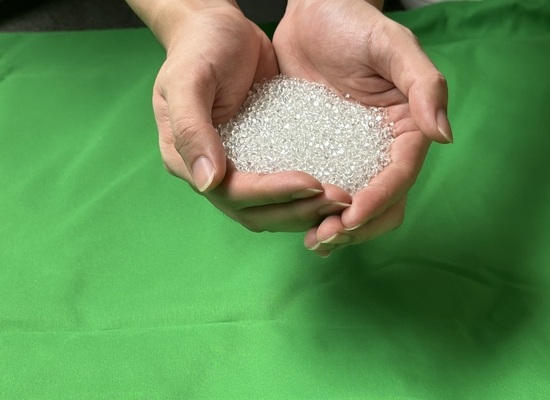
Thermoplastic polyurethane (TPU) is a versatile thermoplastic elastomer composed of hard segments, typically diisocyanates, and soft segments, typically polyols. This dual-segment structure gives TPU the combined properties of plastic and rubber, allowing it to maintain strength and flexibility while being repeatedly heated, molded, and reshaped without degrading. Its unique composition makes it a high-performance material widely used across industries that require durability, elasticity, and reliable processing.
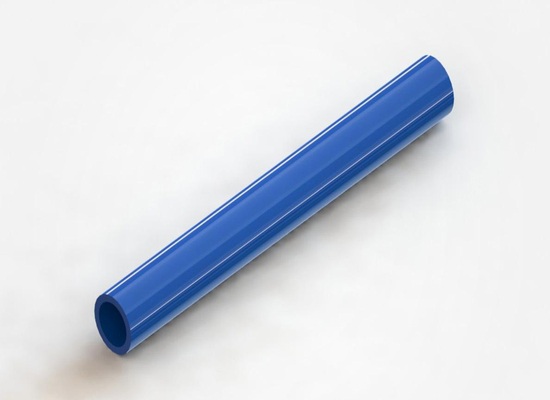
Flexibility and Kink Resistance: TPU hoses are highly flexible, allowing them to bend and route smoothly through tight or complex spaces without kinking. This flexibility simplifies installation and enhances performance in applications where space and maneuverability are limited.
Durability and Abrasion Resistance: The inherent toughness of TPU provides outstanding resistance to wear and abrasion, even under continuous use. This makes the hoses ideal for demanding industrial environments where contact with rough surfaces and heavy-duty operations is common.
Chemical Resistance: TPU hoses withstand exposure to a wide variety of chemicals, solvents, oils, and other aggressive fluids without degrading. This property ensures reliable performance in applications where hoses frequently come into contact with different substances.
Temperature Resistance: With an operating range typically from –40 °C (–40 °F) to 90 °C (194 °F), TPU hoses maintain their integrity in both extreme cold and high-heat conditions. This broad temperature tolerance expands their usability across diverse industries and climates.
Lightweight Construction: Compared to traditional rubber or metal hoses, TPU hoses are much lighter, making them easier to handle and install. Their reduced weight also helps lower overall system load, which is beneficial in mobile or weight-sensitive applications.
Electrical Conductivity: Some TPU hoses can be specially formulated with conductive or anti-static properties to dissipate static electricity. This feature is critical for safely handling flammable liquids, powders, or other sensitive materials.
FDA and Food-Grade Compliance: Many TPU hoses are manufactured to meet FDA and other food-grade standards, ensuring they are safe for direct contact with consumable products. This compliance makes them suitable for food, beverage, and pharmaceutical industries where hygiene and purity are essential.
Increased Operational Efficiency: The flexibility and kink resistance of TPU hoses simplify installation, routing, and maneuvering, saving time and labor during setup. This efficiency helps reduce downtime and improve overall system performance.
Improved Durability and Longevity: Exceptional durability and abrasion resistance extend the service life of TPU hoses, lowering the frequency of replacements and repairs. This results in reduced maintenance costs and greater operational continuity.
Enhanced Safety: Strong chemical resistance and wide temperature tolerance minimize risks associated with exposure to harsh fluids and extreme conditions. This improved safety profile protects both equipment and workers in demanding industrial environments.
Versatility and Adaptability: TPU hoses can handle a wide variety of applications, from fluid transfer to pneumatic systems and specialized industrial processes. This adaptability allows companies to streamline their inventory and reduce the need for multiple hose types.
Compliance and Regulatory Adherence: Food-grade and FDA-approved TPU hoses help businesses meet strict regulatory standards in industries such as food, beverage, and pharmaceuticals. Using compliant hoses ensures product safety, quality, and industry certification.
Environmentally Friendly: TPU hoses are often more sustainable than traditional rubber or PVC hoses due to their recyclability and reduced environmental footprint during manufacturing. This supports companies seeking to align their operations with eco-friendly practices.
The following table will help you understand the uses of thermoplastic polyurethane:
| Markets | Applications |
|---|---|
| Automotive | TPU is widely used for automotive interior parts such as gear knobs, instrument panels, and console components that must resist scratches, aging, and abrasion while maintaining a high-quality surface finish. Its fast cycling performance also provides an economical solution for molders, reducing production costs without sacrificing quality. |
| Agriculture | In agriculture, TPU is ideal for products requiring strength and durability, such as animal identification tags for livestock. Its flexibility, weather resistance, and tear resistance across diverse climates, combined with color and additive options, enable the production of smart, laser-markable ear tags. |
| TPU Sheets and Films | TPU-based sheets and films deliver unmatched performance for inflatables, garment coatings, adhesives, and barrier films. They can be produced through various processes, including T-die or blown film extrusion and calendering, to achieve free or laminated structures. |
| Seals and Gaskets | Special TPU formulations are developed for seals and gaskets needing low compression set, oil resistance, and excellent abrasion performance in high-pressure systems. These materials also exhibit improved flow properties and high hydrolysis resistance for demanding industrial environments. |
| Textile Coatings | TPU provides superior mechanical strength, chemical resistance, weldability, and outdoor durability for textile coatings. It is widely applied in conveyor belts, inflatable items, and military equipment, and is compatible with calendering, sintering, and T-die lamination processes. |
| Sports and Leisure | TPU’s extreme flexibility at low temperatures, combined with impact and environmental resistance, makes it the preferred material for various sports and leisure components. It also offers crystal-clear transparency and excellent paintability, enhancing both aesthetics and performance. |
| Belts and Profiles Industry | TPUs are used to manufacture timing belts, transmission belts, and conveyor belt profiles requiring low creep and exceptional mechanical strength. These materials can be extruded at high wall thicknesses and deliver outstanding weld strength for long-lasting products. |
| Tubes and Hoses | TPU’s durability, wear properties, and excellent processing behavior make it suitable for demanding pneumatic tubing and hydraulic hose applications. It provides flexibility across a wide temperature range while maintaining chemical, mechanical, and kink resistance. |
Selecting the right grade of thermoplastic polyurethane (TPU) depends on matching material properties with application requirements. Key considerations include hardness level, flexibility, and load-bearing capacity, as different grades are formulated to provide varying levels of mechanical strength and elasticity. Chemical resistance, hydrolysis stability, and temperature tolerance are also critical factors, especially in industries where hoses or components come into contact with aggressive fluids or must perform under extreme environmental conditions.
Additional criteria involve regulatory compliance, transparency, and color options, which are important for applications in food, medical, or consumer markets. Processing methods such as extrusion, injection molding, or blow molding must also align with the chosen grade to ensure efficiency and performance. By evaluating these parameters, engineers and procurement teams can select a TPU grade that delivers optimal durability, safety, and cost-effectiveness for their specific industrial or commercial use.
You can source high-quality thermoplastic polyurethane (TPU) hoses from a manufacturer with more than 15 years of industry expertise at Fokcaflow.com. FOKCA operates over 30 production lines and employs strict 6S management, advanced technology, and rigorous testing to ensure products meet ISO9001, TS16949, CE, FDA, and ROHS standards. With a global customer base spanning more than 36 countries, the company offers OEM and ODM services, short delivery cycles, and secure transactions to support industrial automation, food, medical, automotive, and agricultural applications. This combination of scale, innovation, and quality control makes Fokcaflow.com a reliable source for premium TPU products that consistently meet or exceed industry requirements.
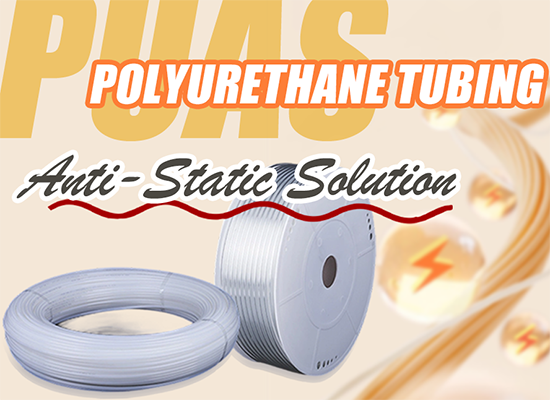 PUAS Polyurethane Tubing: Flexible, Durable, and Anti-Static Solution for Industrial Applications
PUAS Polyurethane Tubing: Flexible, Durable, and Anti-Static Solution for Industrial Applications
 Which Pneumatic Fittings Perform Best in High-Vibration Applications
Which Pneumatic Fittings Perform Best in High-Vibration Applications
 Why Pneumatic Tubing Should Not Be Bent Immediately After an SMC One Touch Fitting
Why Pneumatic Tubing Should Not Be Bent Immediately After an SMC One Touch Fitting
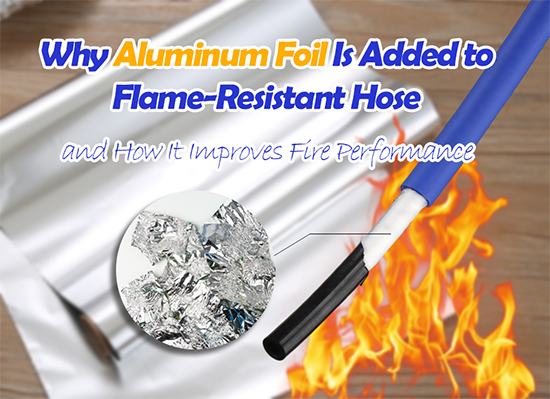 Why Aluminum Foil Is Added to PUFR Flame-Resistant Hose and How It Improves Fire Performance
Why Aluminum Foil Is Added to PUFR Flame-Resistant Hose and How It Improves Fire Performance
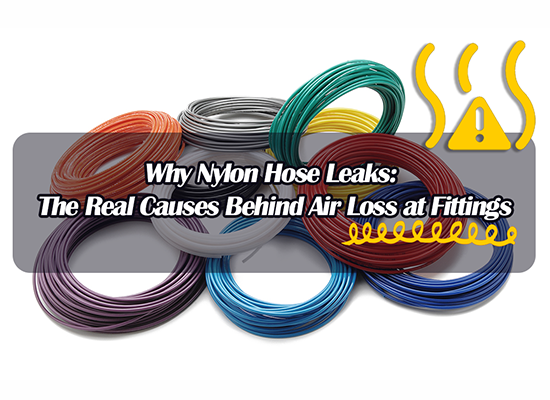 Why Nylon Hose Leaks: The Real Causes Behind Air Loss at Fittings
Why Nylon Hose Leaks: The Real Causes Behind Air Loss at Fittings
You May Interest In
Links: www.fescolo.com(Pneumatic)
FOKCA ©1998-2025 All Rights Reserved Sitemap